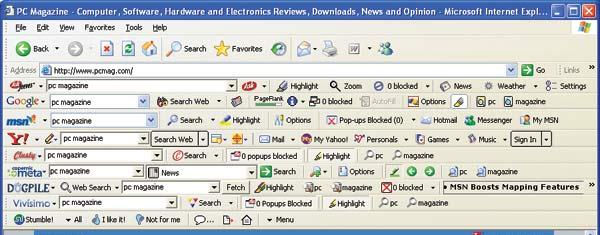I read a technical article everyday this year
For the past year, I’ve been reading technical articles (not so) consistently everyday and sharing them in my blog. It wasn’t easy.
I started this journey after being inspired by Matt Rickard journey on writing a blog post everyday for an whole year: https://matt-rickard.com/a-year-of-daily-blogging.
Apart from reading the article, I also summarized it and archived it in my blog. I did this so I could look back on what I’ve been reading and track my interests over time. Let’s take a look at some statistics:
The table above are the top 25 keywords used in the articles I’ve read.
First of all, I’m really surprised Matt Rickard is the #1 keyword in the reads section. This means that I’ve read 64 articles from Matt Rickard, or about 17% of 2023. I expected this keyword count to be high, since his posts were influential to me in the beginning, but I stopped reading them once he started to focus a lot on AI and LLMs (which he still does, unfortunately).
Software Engineering being the second most referenced keyword is expected. My favourite technical articles focus on software engineering details as well as software architecture. AI, LLM and ChatGPT are also expected because of the AI boom. I’ve also read a few Kotlin and Android articles, mainly those curated in the Kotlin Weekly newsletter. You should subscribe it if you work in Android or with Kotlin!
What I was not expecting is the amount of business and entrepreneurship articles I’ve read. Maybe that’s an indicator that I should start focusing on product development and sales (like discover which software value is missing for people, how to sell software).
Now, let’s talk about the difficulties felt in this journey.
First of all, this challenge seemed way easier in the beginning of the year, but sooner proved to be really hard. Finding something interesting to read these days is easy, but finding something valuable is hard. Taking the time to read what you found after work, becomes harder and harder everyday. That’s why I started adopting some techniques to ease the challenge, like reading more than one article beforehand, reading before work (early birder) or sticking to small blog posts on days I felt more tired.
Reading is only one part of the challenge. The second part begins when it’s time to summarize it and archive it in the blog. This last part was actually the hardest part, since I needed to scrape the article, transform it in markdown, write the summary, archive images and fix formatting issues. Sometimes, archiving an article took me more than an hour to do so.
I really have to thank my girlfriend for understanding the pain points and helping me reduce the time and stress that is archiving articles. She took the time to develop a web app that simplifies the archiving process by a ton. From using only the article link, this app is able to:
- scrape the content of the article
- automatically detect keywords and the article description
- prompt me for the article summary
- create and download the markdown file in the schema which my blog SSG understands
After downloading the markdown file, all that was left to do is cleaning up junk that comes from scraping, as well as archiving images. For this last part, it was also automated using github-upsert, a CLI tool we created to upload files in a GitHub repo directly from the command-line (article images were archived in the Cinderela repository, so I could be sure they wouldn’t be gone forever if the article author decided to delete them).

What my Chrome bookmark bar feels like after bookmarking ten articles
Another hurdle I felt throughout the year was keeping up with the articles I bookmarked to read. Initially was using my browser bookmark bar, but later realized the mess it is to keep up with a bookmark bar. At least in Chrome, it feels really clunky to locate bookmarks, as well as deleting them. To fight this hurdle, we created github-bookmark, a browser extension to bookmark webpages as issues in a GitHub repo. This tool really boosted my productivity, because now I can manage the articles to read and archive directly in my blog GitHub repository.
It was hard, but I sticked to the challenge. I may not remember everything that I read (believe me, I don’t 🤐), but it was a great way to increase my discipline. As for 2024, I won’t continue the challenge, but will occasionally share some articles throughout the year.